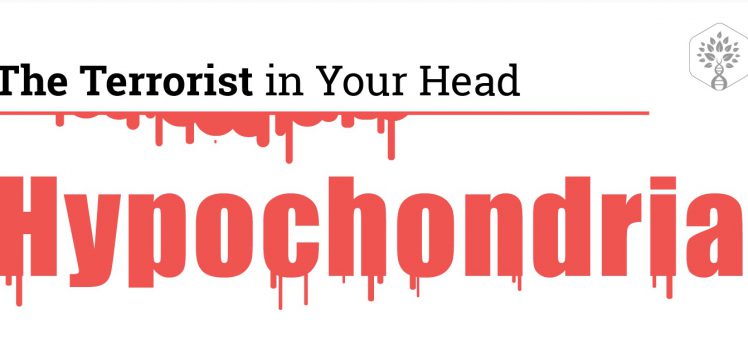Hypochondria – The Terrorist in Your Head (Infographic)

*Scroll down for Infographic
Nearly 9% of the world’s population has experienced hypochondriasis in one or another way. This happens to be the reason for $20 billion spent for unnecessary medical examinations in the US alone each year. At the same time, another 45% are predisposed to hypochondria and only 4.5% receive some form of a treatment.
No matter the data gathered trough different studies and observations, the publically available information about hypochondria is still badly organized and very insufficient. The condition is still considered underexplored. It is often related to other disorders and, unfortunately, not fully understood even by doctors and psychiatrists.
Hypochondria is an abnormal chronic preoccupation with fears of having, or the idea that one has, a serious disease based on the person’s misinterpretation of bodily symptoms. This is what is written and the big books. Said in other words – it is the frightening thought that every discomfort, headache or spot on your skin might be a sign of a deadly disease, and it is the uncontrollable urge to read all night long on the internet about symptoms and possible treatments.
We at FindMeCure communicate with different types of patients on a daily basis, trying to understand better their needs and to help them find more options to heal trough treatments in development. If we learned something for the time we are doing it, it is to really listen to patients. So, when we decided to throw light on hypochondria in our blog, the number one thing we did was speaking to a person who knows this disorder first hand. It turned out that the story of Jane (Inside the Soul of Hypochondriac) was hard to tell, but it was also all flesh and blood as only a real human story can be.
What we often forget but really matters is that every single story is part of many other stories. Human beings are all unique, but at the end of the day we tend to go through the same struggles, we fight the same feelings, we suffer the same pain and we often find salvation on the same islands of hope.
So, here is a visual summary of all the data we found about hypochondria to give you a glimpse of what the global scale of the problems is.
We hope you find the infographic useful and share it with friends who might be interested.



That inh’istgs just what I’ve been looking for. Thanks!